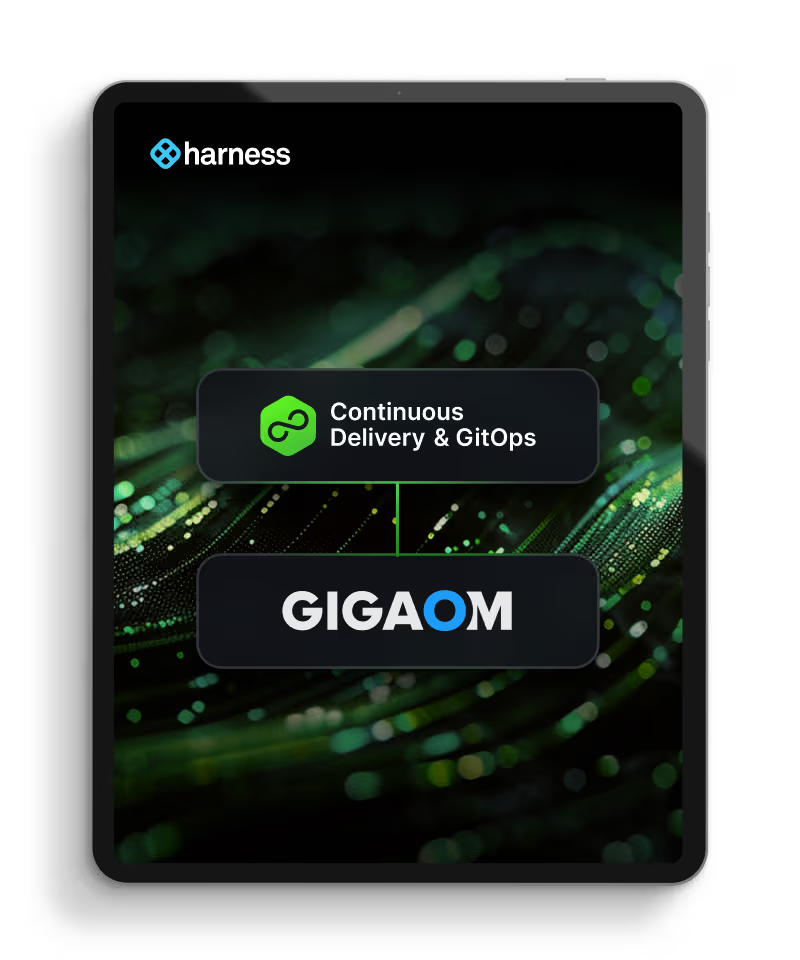Key takeaway
A code repository is the cornerstone of modern software development, storing, organizing, and tracking code changes across teams and projects. By leveraging code repositories, development teams enhance collaboration, maintain code quality, and streamline the entire software delivery pipeline through continuous integration and deployment practices.
A code repository is a centralized platform where developers store and maintain source code, configuration files, and other relevant assets for a software project. In modern software engineering, code repositories help teams collaborate more effectively by providing version control, branching, and merging features. Think of it as a digital library for your code—every entry is recorded, organized, and preserved for future reference or improvement.
Code repositories are integral to building software at any scale. Whether you’re a solo developer working on a passion project or a large enterprise coordinating multiple teams, a well-structured code repository is often the difference between smooth deployments and chaos. Modern platforms—such as Git, Mercurial, and Subversion—use distributed or centralized version control to keep track of changes efficiently.
Why Code Repositories Are Essential for Collaboration
When multiple developers work on the same codebase, code repositories become an indispensable collaboration tool. Here’s why:
- Version Control: Code repositories maintain an audit trail of every file change, enabling you to roll back to earlier states if needed. This also simplifies troubleshooting because you can compare revisions to find and fix issues quickly.
- Branching and Merging: Modern platforms allow you to create separate branches for new features or bug fixes and then merge them into the main (or “trunk”) branch when ready. This method promotes parallel development and reduces conflicts.
- Team Coordination: A code repository acts as a single source of truth. Developers can see what others are working on, stay updated on relevant changes, and maintain consistent standards across the entire codebase.
- Traceability: By creating commits and pull requests, you track the “who, what, and why” of each code change, ensuring accountability and transparency among team members.
- Continuous Integration: Many popular repositories integrate seamlessly with Continuous Integration (CI) tools, automating build testing and code review steps. This synergy ensures that frequent commits are validated, improving software stability and speed of delivery.
Types of Code Repositories
There are two primary types of code repositories: centralized and distributed.
- Centralized Version Control Systems (CVCS)
In a CVCS—like Subversion (SVN)—there is a single, central server that holds the main codebase. Developers “check out” the code to their local machines, make changes, and commit them back to the central server. While this model is simpler for beginners, it can lead to single-point-of-failure issues if the main server goes down. - Distributed Version Control Systems (DVCS)
Git and Mercurial are the most widely adopted distributed systems. Every contributor has a full copy of the codebase stored locally. This setup allows developers to commit, branch, and merge changes even without internet access. The advantage of DVCS is better fault tolerance and smoother workflow for teams working across different time zones and networks.
Regardless of the repository type, the aim is the same: maintain the integrity of the codebase while making it accessible to all team members.
Key Features to Look For in a Code Repository
Not all code repositories are created equal. Here are critical features to look for when choosing a solution:
- Scalability
Your code repository should be able to handle growing amounts of data and large numbers of developers over time without sacrificing performance. - Security
Given that your code often represents valuable intellectual property (IP), a repository solution must offer robust security—encryption at rest and in transit, user authentication, and role-based access control. - Collaboration Tools
Look for features such as code reviews, pull requests, and merge requests to streamline team collaboration. Automated workflows and integrations with CI/CD tools are also essential for accelerating delivery. - Branch Management
An intuitive way to create, review, merge, or discard branches is vital for agile development practices. A repository that supports multiple branching strategies—such as trunk-based or Git-flow—can adapt to your team’s workflow easily. - Integrations and Extensions
From issue tracking systems to DevOps platforms, a code repository that boasts strong third-party integrations can unify your workflow. For instance, linking the repository to a CI system allows for automated builds and tests every time new code is committed. - Performance & Reliability
Repository performance heavily impacts developer productivity. If the repository takes too long to fetch or push changes, it slows down the entire development cycle. Reliability is also crucial to avoid downtime, preventing teams from grinding to a halt.
How to Set Up a Code Repository
Setting up a code repository can vary depending on the platform, but the foundational steps remain consistent:
- Choose Your Version Control System
Decide whether your project demands a distributed approach (e.g., Git) or a centralized solution. Git is by far the most popular option for modern software projects. - Create a Repository
You can create a new repository locally using a CLI command (e.g., git init) or through a hosted service like GitHub, GitLab, or Harness’s own Code Repository solution. Hosted services often provide intuitive web UIs that let you click a button to “Create New Repository.” - Add Files and Directories
After initializing, add your project files. This includes source code, scripts, documentation, and any supporting assets. Be sure to include a .gitignore file for Git projects to exclude files you don’t need—like build artifacts and environment-specific configurations. - Commit and Document Your Changes
A commit is a snapshot of your project at a point in time. It’s best practice to make small, frequent commits, each with a descriptive message indicating the changes made. - Push to Remote Repository
If you are using a service hosted in the cloud, the next step is to push your local repository to a remote server. This ensures that other team members can access your code and collaborate. - Set Up Basic Protections
Consider enabling branch protection rules, requiring code reviews before merging, and setting up automated tests. Security measures like role-based access also guard against unauthorized changes.
Best Practices for Managing a Code Repository
Building a robust code repository strategy is crucial to long-term success. Here are some best practices:
- Adopt a Standardized Branching Model
Standardizing your branching model—like GitFlow or trunk-based development—makes it easier for your team to collaborate consistently. - Write Clear Commit Messages
Consistent and descriptive commit messages make it easier to trace how your project evolved and help future maintainers understand the rationale behind each change. - Use Pull Requests for Collaboration
Pull requests or merge requests encourage peer review and improve overall code quality. They also serve as a historical record of discussions and decision-making for each change. - Implement Continuous Integration
Setting up automated builds and tests ensures every commit is validated before being integrated into the main codebase, reducing the likelihood of regressions. - Emphasize Security and Governance
Security scans for vulnerabilities, robust encryption, and role-based access control are critical for enterprise-grade projects. - Backup and Disaster Recovery
Even if you use a distributed version control system, regular backups of your remote server remain essential. Accidents, hardware failures, or security breaches can occur at any time. - Regular Audits and Housekeeping
As your repository grows, ensure you clean up stale branches and reorganize directories to keep the codebase manageable.
How Harness’s Code Repository Solution Helps
Harness takes the concept of a code repository to the next level by offering an AI-Native Software Delivery Platform that seamlessly integrates source code management, security, and developer experience. Harness’s Code Repository is often referred to as the “Fort Knox of Source Code Management,” designed to be AI-enabled for developers and governance-enabled for organizations.
- AI-Enabled Developer Workflows
Harness’s platform provides intelligent suggestions, code insights, and anomaly detection. By automating tasks such as code quality checks, it speeds up your development cycle. - Governance and Security
Harness’s Code Repository includes built-in security testing orchestration. This means compliance is enforced at every stage of development, ensuring your intellectual property remains protected against vulnerabilities and policy violations. - Seamless Integration with CI/CD
The Harness Code Repository integrates seamlessly with Harness Continuous Integration and Harness Continuous Delivery. You can automate testing and deployments in one unified platform, optimizing speed and reliability. - Developer Experience
Harness offers a developer-centric approach. With features like pull request automation, code scanning, and straightforward UI, teams spend less time on configuration and more time building features that matter. - Scalable and Future-Ready
Whether you have ten developers or thousands, Harness’s Code Repository can scale while maintaining performance and reliability. As codebases grow larger and more complex, the AI-driven optimizations and governance features continue to adapt.
By leveraging Harness’s Code Repository as part of the entire Harness platform, organizations can streamline their software delivery pipeline and boost overall efficiency. This holistic approach aligns perfectly with DevOps best practices, allowing continuous integration, deployment, and even security scanning to work together seamlessly.
In Summary
A code repository is more than a storage location for your source code; it’s the linchpin for collaboration, version control, and automated software delivery. Whether you choose a distributed or centralized system, incorporating best practices—from standardized branching to continuous integration—ensures a healthy, maintainable codebase. Harness takes these benefits further by providing an AI-Native Software Delivery Platform that integrates source code management, security, and governance in a single ecosystem.
By adopting a robust code repository solution—like Harness’s Code Repository—your engineering teams can enhance developer experience, maintain high code quality, and scale confidently. Armed with the right tools and practices, you’ll be well-positioned to innovate rapidly and deliver reliable software to end-users.
Frequently Asked Questions
1. What is a code repository used for?
A code repository is used to store, organize, and manage source code and related project files. It also supports version control, collaboration, and documentation of changes, enabling developers to work on the same codebase efficiently.
2. What is the difference between centralized and distributed version control?
In a centralized model, a single server holds the main codebase, and developers commit changes back to it. In a distributed system like Git, every developer has a full copy of the repository locally, which allows commits, branching, and merging without relying on a central server at all times.
3. Why do teams need branching strategies?
Branching strategies let teams develop features, fix bugs, and experiment independently without interfering with the main code. This isolates changes until they’re proven stable, making collaboration smoother.
4. How does continuous integration fit into a code repository workflow?
Continuous integration (CI) automates building, testing, and merging code changes in real-time. Integrating a CI tool with your code repository ensures every commit is automatically tested, reducing the risk of introducing broken code.
5. Why should I consider using Harness’s Code Repository?
Harness’s Code Repository is part of the AI-Native Software Delivery Platform. It combines version control, security scanning, governance, and developer experience optimization in a single solution, ensuring efficient and secure software delivery pipelines.
6. Can I migrate my existing projects to Harness’s Code Repository?
Yes, migrating existing projects typically involves importing or mirroring your current repositories into Harness. The migration process is straightforward, and Harness’s platform is built to accommodate both new and existing codebases without disruption.
7. What security features are important in a code repository?
Essential security features include encryption (both in transit and at rest), role-based access controls, vulnerability scanning, integration with security testing tools, and logging or auditing capabilities. Harness’s Code Repository includes comprehensive security measures that ensure your code remains protected at all stages.

Harness is a GitOps Leader
Discover why Harness was named a Leader in the "GigaOm Radar for GitOps Solutions." Harness helps teams manage GitOps at scale and orchestrate rollouts across clusters and regions.


